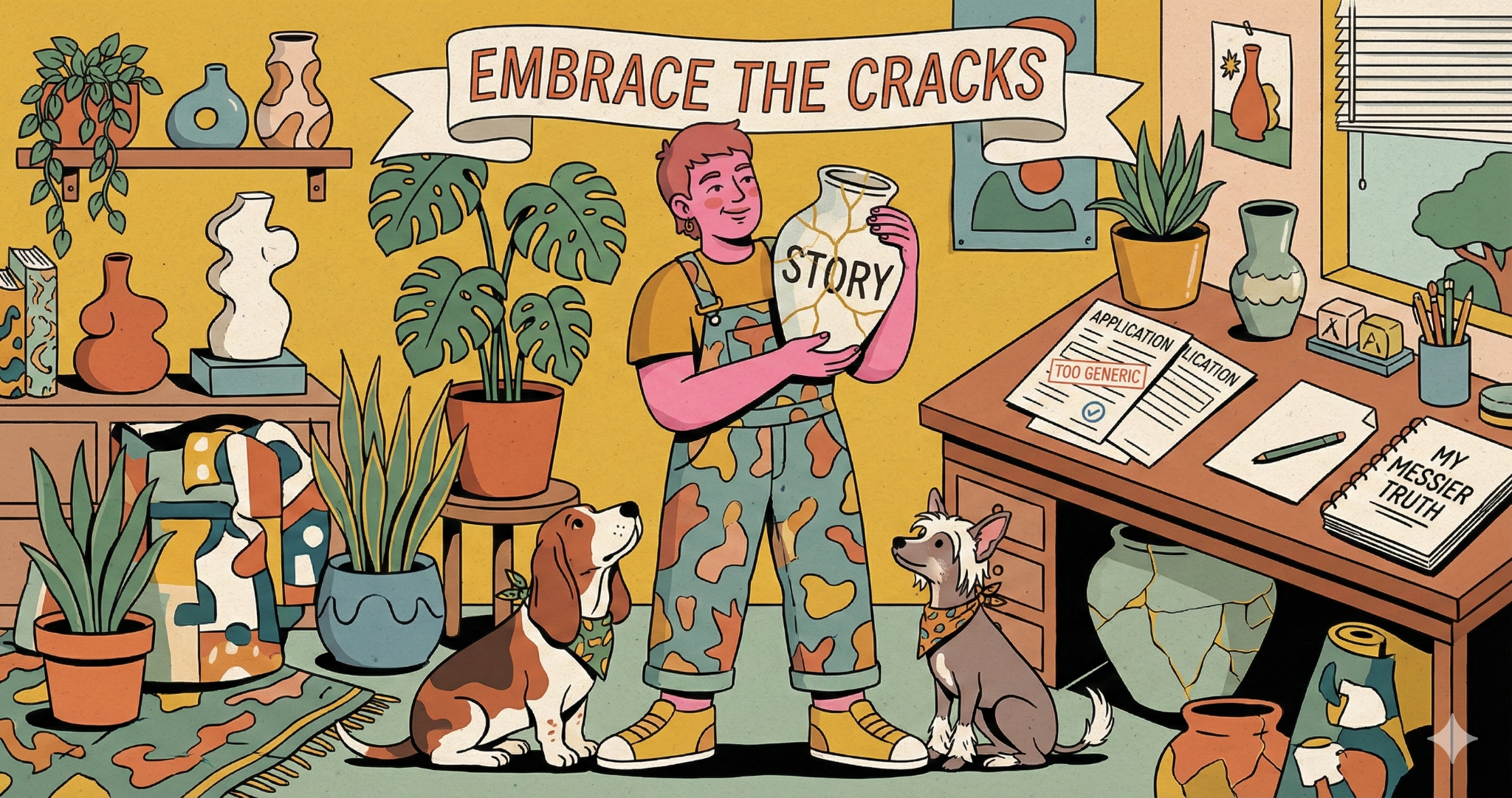
Should You Write About Trauma in Your College Essay?
We’ve worked with students who’ve written about a wide range of experiences—injuries, violence, sexual abuse, eating disorders, family crises—and we’ve seen firsthand how these stories can be both transformative and challenging to tell.
Here’s what we’ve noticed: There are two types of students when it comes to essays like this. Some avoid talking about anything remotely difficult, worried they’ll seem weak or that colleges only want success stories. Others believe colleges are handing out points for the most dramatic tale of trauma, thinking, "The harder my story hits, the better." Neither approach works.
Colleges aren’t scoring your pain or looking for melodrama. What they’re really after is character and growth. This isn’t about what happened to you—it’s about what you’ve learned from it and how it’s shaped who you are. Sharing your trauma is powerful only if it’s framed thoughtfully. And yes, working with a safe adult, someone outside your family who can help you process these experiences, is a game-changer. That’s what we’re here for.
Lead with Growth, Not Grief
Your essay isn’t about what happened to you; it’s about what you’ve done since. Show how you turned a painful experience into something meaningful.
Meet Lily: Lily experienced a sexual assault that left her feeling shattered. Her essay didn’t focus on the assault itself—instead, it highlighted her journey to reclaim her voice. She created events to raise awareness about consent and safety, sharing her experience to help others. Her essay worked because it showed transformation, purpose, and a commitment to making a difference.
Be Honest, But Strategic
Skip the graphic details. Instead, share how the experience shaped your perspective and actions.
Meet Mia: Mia battled anorexia during her grandfather’s illness, using running as a coping mechanism. Her essay wasn’t a diary of her disorder; it was a reflection on her journey to recovery. Through therapy, family support, and determination, Mia reclaimed her health and learned to prioritize herself. She wrote about her growth with a mix of honesty and optimism.
Show What You’ve Learned, Not Just What You’ve Lived
A great essay goes beyond the events themselves to explore what they taught you. Dive into the specific lessons, skills, or shifts in perspective that came from your experience.
Meet Jack: Jack’s family was upended by his sister’s health struggles, but his essay wasn’t a simple recounting of events. He described the small, everyday acts of love that helped him grow—like learning to cook tikka masala for his brother or finding humor during tough times. Jack reflected on how these moments taught him empathy, resilience, and what it truly means to show up for others. His essay stood out because it wasn’t just about what he endured; it was about how he grew.
End With Purpose, Not Just Hope
Don’t stop at "things got better." Show how the experience shaped who you are now and how it connects to the future you’re building.
Meet Noah: Growing up with an autistic brother struggling with addiction, Noah’s family life was chaotic. In his essay, Noah explored how his frustration turned into a drive for self-improvement and a passion for helping others. His closing reflected on his desire to pursue psychology, inspired by his family’s struggles. Noah’s essay worked because it was grounded in reflection and forward-thinking.
When to Avoid Writing About Trauma
There are times when writing about trauma isn’t the right move, and that’s okay. Here’s when it might be better to explore a different topic:
- The Wound Is Too Fresh: If you’re still in the thick of processing your trauma, it might be hard to reflect with the clarity needed for a great essay. Take the time you need.
- It’s Not Your Story to Tell: Writing about someone else’s trauma—even if it impacted you—can come off as opportunistic or impersonal. This essay is about you.
- There’s No Growth (Yet): If you’re struggling to find the takeaway or lesson, give it time. Your essay should show how you’ve grown, not just what you’ve endured. We might be able to help you get there!
- It Feels Disconnected: If your story doesn’t tie into the larger picture of who you are, consider choosing a topic that better reflects your overall narrative.
Why It Helps to Have a Guide
Talking about trauma is tough. Writing about it can be even harder. That’s why we’re here to help. We know how to guide you through the messy emotions, the self-doubt, and the big questions about what to share and how to share it.
We also understand the sensitivity of these topics. We’re here to listen, to support, and to help you shape your story in a way that feels true to who you are. Think of us as the smart, sassy older sister you didn’t know you needed—here to hype you up, help you process, and keep it real every step of the way.
The Bottom Line
Writing about trauma isn’t about shocking your reader or earning points for drama. It’s about showing who you are: your character, your growth, and the unique perspective you bring to the table.
If you’re stuck between saying too much and saying nothing at all, remember this: Your story doesn’t have to be perfect or tied up with a neat little bow. It just has to be yours. Focus on what you’ve learned and how it’s made you better prepared to tackle whatever comes next. And if that feels overwhelming, we’re here to guide you every step of the way.
Whether your essay is about a deeply personal struggle or a quieter moment of transformation, we’ll help you tell it with courage, clarity, and heart. Your experiences matter, and when shared thoughtfully, they can help admissions officers see the real, incredible you behind your application.

Post a comment